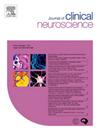疱疹性脑炎的阿昔洛韦用药策略:回顾性病历
IF 1.9
4区 医学
Q3 CLINICAL NEUROLOGY
引用次数: 0
摘要
背景:疱疹性脑炎是一种危及生命的疾病,它会引起严重的脑部炎症,如果不及时治疗,往往会导致永久性的神经损伤或死亡。无环鸟苷是治疗疱疹性脑炎的主要抗病毒药物。早期使用对于降低严重脑损伤的风险和提高生存率至关重要。本研究的目的是描述疑似脑炎患者使用阿昔洛韦的剂量,并确定阿昔洛韦给药方案与其安全性和有效性之间的潜在关联。方法对阿尔伯塔大学医院收治的疑似或诊断为疱疹性脑炎的阿昔洛韦患者进行回顾性单中心观察研究。回顾患者病历。收集患者人口统计、合并症史、合并肾毒性药物、住院科室、住院时间、阿昔洛韦剂量、病毒性脑炎诊断和结局。疗效指标包括完全恢复、部分恢复和死亡。安全性指标包括在阿昔洛韦治疗期间发生急性肾损伤(AKI)。我们使用回归模型分析了结果的预测因素。结果共纳入237例患者。在接受阿昔洛韦治疗超过2天的患者中,88例(57%)患者接受了足够剂量,54例(35%)患者接受了亚治疗剂量方案,12例(8%)患者接受了超治疗方案。年龄越大,预后越差(校正优势比(OR) 1.05, 95%可信区间(CI) 1.01-1.09, p = 0.02)。此外,有一种趋势表明,1型单纯疱疹病毒(HSV-1)导致最坏的结果,在亚治疗剂量组中观察到的不良结果百分比最高。相比之下,阿昔洛韦的超治疗剂量与AKI显著相关(调整后OR 12.9, 95% CI 3.14-53.07, p <;0.001)。结论本研究提示,非肥胖患者按实际体重给药,肥胖患者按调整体重给药,可通过促进康复和预防毒性作用来改善预后。需要多中心前瞻性研究来证实这种关联,并为疱疹性脑炎阿昔洛韦的最适当剂量提供明确的指导。本文章由计算机程序翻译,如有差异,请以英文原文为准。
Acyclovir dosing strategies in herpes encephalitis: A retrospective charts review
Background
Herpes encephalitis is a life-threatening condition that causes severe inflammation of the brain, often leading to permanent neurological damage or death if not treated promptly. Acyclovir is the main antiviral treatment for herpes encephalitis. Early use is essential to lower the risk of severe brain damage and improve survival rates. The objectives of this study were to describe the dosing of acyclovir in patients with suspected encephalitis and to determine the potential association between acyclovir dosage regimen and its safety and effectiveness.
Methods
A retrospective single-center observational study of patients admitted to the University of Alberta Hospital who received acyclovir and were suspected of having or diagnosed with herpes encephalitis. Patient charts were reviewed. Patient demographics, history of comorbidities, concomitant nephrotoxic medications, hospitalization department, length of hospital stay, acyclovir dosing, viral encephalitis diagnosis and outcomes were collected. Effectiveness outcomes included full recovery, partial recovery and death. Safety outcomes included the development of acute kidney injury (AKI) while on acyclovir treatment. We analyzed predictors of the outcomes using regression modeling.
Results
A total of 237 patients were included in the study. Among the patients who received acyclovir for more than 2 days, 88 (57 %) patients received an adequate dose, 54 (35 %) patients received sub-therapeutic dosage regimen and 12 (8 %) patients received supra-therapeutic regimen. Older age was associated with less favorable outcomes (adjusted odds ratio (OR) 1.05, 95 % Confidence Interval (CI) 1.01–1.09, p = 0.02). Additionally, there was a trend suggesting that herpes simplex virus type 1 (HSV-1) resulted in the worst outcomes, with the highest percentage of unfavorable outcomes observed in the sub-therapeutic dosing group. In contrast, supra-therapeutic dose of acyclovir was significantly associated with AKI (adjusted OR 12.9, 95 %CI 3.14–53.07, p < 0.001).
Conclusion
Our study suggests that administering acyclovir based on actual body weight for non-obese patients and adjusted body weight for obese patients may enhance outcomes by promoting recovery and preventing toxicity. Multicenter prospective studies are needed to confirm such association and to provide clear guidelines of the most appropriate dosing of acyclovir in herpes encephalitis.
求助全文
通过发布文献求助,成功后即可免费获取论文全文。
去求助
来源期刊

Journal of Clinical Neuroscience
医学-临床神经学
CiteScore
4.50
自引率
0.00%
发文量
402
审稿时长
40 days
期刊介绍:
This International journal, Journal of Clinical Neuroscience, publishes articles on clinical neurosurgery and neurology and the related neurosciences such as neuro-pathology, neuro-radiology, neuro-ophthalmology and neuro-physiology.
The journal has a broad International perspective, and emphasises the advances occurring in Asia, the Pacific Rim region, Europe and North America. The Journal acts as a focus for publication of major clinical and laboratory research, as well as publishing solicited manuscripts on specific subjects from experts, case reports and other information of interest to clinicians working in the clinical neurosciences.
 求助内容:
求助内容: 应助结果提醒方式:
应助结果提醒方式:


